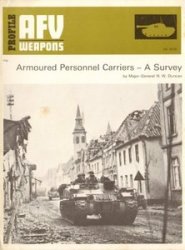As mentioned earlier, Irish Catholics were generally disinterested in the Jacobite risings in Scotland and England in 1715 and 1745. There was a decline of religious enthusiasm and an acceptance of philosophical Deism by many in the established church. Both factors served to promote a more liberal and generous attitude toward the Catholics of Ireland. A formal declaration by many of the Catholic hierarchy that the pope had no civic or temporal authority in Ireland was also helpful in this regard. The relief began with the admittance of Catholics to the lower ranks of the army in 1750. In 1771 Catholics were allowed to take leases of 61, rather than only 29, years on up to 50 acres of "unprofitable land." This was a "toe in the door," followed in 1778 by Gardiner's Relief Act, which allowed Catholics to take leases of indefinite tenure, but not obtain outright freeholds. The same inheritance laws were to apply to Catholics as to Protestants, ending the punitive insistence on gavelkind (equal inheritance to all male heirs), which had been designed to dilute the size of Catholic holdings after each generation. Then, in 1782, in the midst of the enthusiasm over the attainment of parliamentary independence, the Irish parliament passed a second Gardiner's Relief Act, which allowed Catholics to purchase, hold, and bequeath freeholds on the same terms as Protestants. Laws against the regular Catholic clergy and the required registration by any other priest were done away with, as were laws against the Catholics establishing schools. But efforts by Grattan to go even further in gaining liberties for Catholics were opposed by his allies Charlemont and Flood. In fact, fear of whetting Catholic appetites for lands held formerly by their ancestors prompted the passage by the same parliament of Yelverton's Act, which reaffirmed the land awards by the English parliament since 1642.
The limits to which the generosity could go before it was seen as threatening the Ascendancy became apparent in November 1783 at a convention of the Irish Volunteers in Dublin. A motion by the Episcopal bishop of Derry, Frederick Harvey, to give Catholics the vote was defeated. When the same convention forwarded motions to reform parliament in the direction of more equitable representation, the Ascendancy apprehensions were alerted in parliament. John Fitzgibbon, who would become the Earl of Clare and a dominant figure in the government, warned "I do not think life worth holding at the will of an armed demagogue," by which he meant Henry Flood and his Volunteer-sponsored reform resolutions. With the decisive defeat of the resolution, the centrality of the Volunteers in Irish politics ended, although many of its members would eventually be drawn in more radical directions.
But sympathy for further Catholic relief did not disappear, and Catholics themselves were emboldened to advance their cause. A Catholic Committee, composed primarily of Catholic aristocrats like Lord Gormanstown and Lord Kenmare, continued to press their grievances and had as an ally the Irish-born parliamentary figure, Edmund Burke.5 Subsequent British governments were less sympathetic to Irish parliamentary aspirations, although remaining more generously disposed toward Catholics than the Irish parliament.
Many rank-and-file Catholics were drawn into the "Defenders," a peasant organization not inhospitable to violence that nurtured a romantic idealization of a former past and an aspiration for an undefined liberation from abroad, either through the "Wild Geese" or sympathetic foreign sovereigns. Defender involvement often overlapped with participation in irregular peasant groups such as the Whiteboys who resorted to violence, including cattle-maiming and arson, in protest at landlord maltreatment of tenants.




 World History
World History









